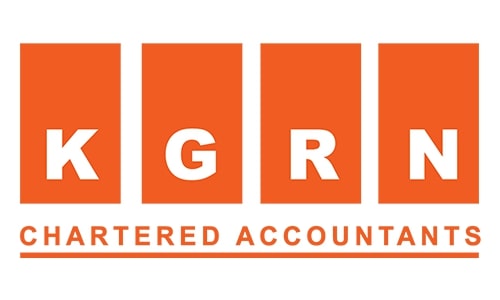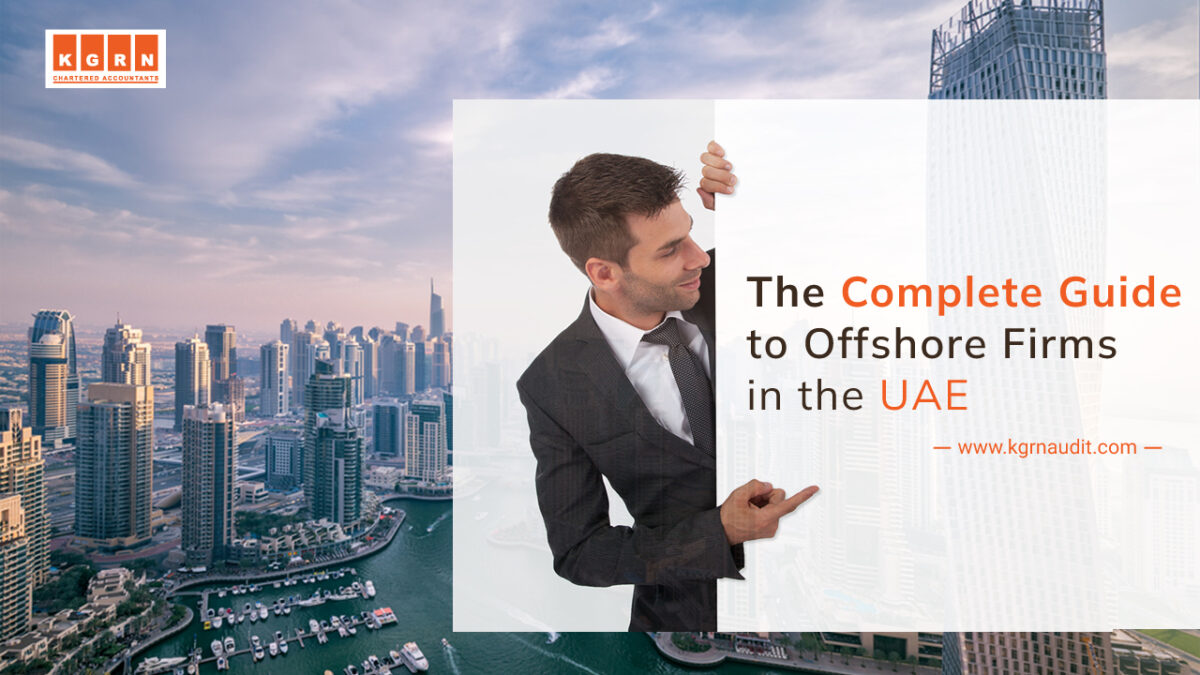With offshore firms, a lot of financiers, major enterprises, and small startups are entering the United Arab Emirates.
3 Important Jurisdictions Providing Offshore Corporations in UAE
Your choice of jurisdiction for the formation of your offshore entity will have no bearing on its success. Yet, what is a jurisdiction? A jurisdiction is a nation or territory where a certain court and legal structure are in charge. The United Arab Emirates (UAE) is a federation made up of seven distinct Emirates, each with its own judicial system. Only three of these states are permitted to offshore businesses to the United Arab Emirates. Let’s examine them more closely now:
RAK International Corporate Centre, a. (RAK ICC)
RAK International Corporate Centre (RAK ICC) is a prominent entity located in the Emirate of Ras Al Khaimah, established in early 2015. It serves as the primary authority in Ras Al Khaimah for the registration and incorporation of International Business Companies (IBCs). RAK ICC offers a comprehensive range of registry services related to International Business Company activities, operating in full compliance with international standards and best practices. It is known for its modern and world-class approach to company registration services, continuously evolving its suite of products to meet the diverse needs of its clients. RAK ICC’s vision is centered on leveraging employee knowledge, skills, innovation, and teamwork to add substantial value to clients’ businesses. The center is committed to providing efficient, cutting-edge quality services and solutions for company incorporation, promoting excellence through advanced due diligence processes and registration systems.In summary, RAK International Corporate Centre (RAK ICC) is a leading entity in Ras Al Khaimah responsible for the registration and incorporation of International Business Companies, offering a modern and customer-centric approach to company formation services in compliance with international standards.
The Jebel Ali Free Zone (JAFZA)
JAFZA offers a range of business setup options, including Free Zone Companies (FZCo), Public Listed Companies (PLC), and Free Zone Establishments (FZE), catering to different shareholder structures and business requirements. The free zone provides various license types such as Trading, Industrial, Service, and E-Commerce licenses, enabling businesses to engage in a wide array of commercial activities. JAFZA’s commitment to innovation, customer-centricity, and transparent operations has positioned it as a leading driver of the UAE economy, fostering long-term customer relationships and global investor alliances. JAFZA offers a range of business setup options, including Free Zone Companies (FZCo), Public Listed Companies (PLC), and Free Zone Establishments (FZE), catering to different shareholder structures and business requirements. The free zone provides various license types such as Trading, Industrial, Service, and E-Commerce licenses, enabling businesses to engage in a wide array of commercial activities. JAFZA’s commitment to innovation, customer-centricity, and transparent operations has positioned it as a leading driver of the UAE economy, fostering long-term customer relationships and global investor alliances.
Ajman Free Zone
Ajman Free Zone (AFZA), established in 1988, is a prominent free trade zone located in Ajman, United Arab Emirates. It is one of the designated free zones in the UAE offering offshore company setup and operation to investors. AFZA allows investors to establish companies with 100% foreign ownership and no taxation, providing services such as visas for expatriate workers, land for development, and business premises. Business licenses at AFZA are renewable annually, with costs starting from UAE Dhs 11,900. The free zone exempts companies from the 5% Value Added Tax when trading between free zones or internally, but the tax is applicable on goods and services traded onshore into the UAE. AFZA is a hub for various businesses, with Indian-owned companies comprising 40% of the total operating from the zone. It is a growing free zone, with a significant number of new business registrations year on year, supporting a range of business types and offering a conducive environment for international trade and investment.
There are 3 Requirements to Form an Offshore Company in the UAE
Now that you are fully informed about offshore companies in the UAE, the following is a list of the necessary conditions to be met in order to register an offshore company in the UAE:
1. Name of the Organization
The suffix “Limited or Ltd” must be present at the end of the name of your UAE offshore business to indicate that it is an offshore entity under UAE law.
2. Offshore Local Agent
The JAFZA Offshore Authority, RAK Offshore Authority, or Ajman Offshore Authority are some of the UAE Offshore authorities that register local offshore agents.
To finalise the incorporation of your UAE offshore business, you will need one of these registered agents. Unless it’s a JAFZA offshore corporation, in which case you must personally register the business.
3. Minimum Required Share Capital
- To establish an offshore corporation in the UAE, there is no minimum share capital required.
- After the Companies Law was changed in 2009, offshore businesses can now choose the share capital for their limited liability corporation. Naturally, they need sufficient funds to accomplish their goals.
- The UAE offshore authorities will also not request to see a specific quantity of money in your bank before forming your offshore firm.
- A respectable way to aid in the expansion of your business is to establish an offshore company in the UAE.
- You can take advantage of the lenient restrictions and prosper in a tax-free company environment. Offshore businesses are excellent for privacy and asset protection since they permit 100% foreign ownership.
3 Important Elements Of An Offshore Business In The UAE
UAE offshore firms are excellent for taking advantage of global marketplaces. But first, it’s important to properly understand the various traits of an offshore corporate entity. You should be aware of the following three major factors regarding offshore businesses in the UAE:
1. Use of a business bank account
In the UAE, you can open corporate and private bank accounts for offshore businesses. In the UAE, opening an offshore bank account is a pretty simple process for managing personal assets or safeguarding a company’s business operations. If you want to use your offshore company to do worldwide business (outside of the UAE), this will be extremely important to the growth of your firm.
2. You must adhere to the Know Your Customer (KYC) procedure
The Know Your Customer (KYC) procedure is used by offshore businesses in the UAE. You must submit certain paperwork as part of the KYC procedure, including a copy of your passport, identification proof, a bank reference letter, and investor biographical information. These documents must be turned in to the officials of the offshore jurisdiction you select. This aids in tracking unethical activities including money laundering, financial fraud, and identity theft as well as bank laws for investors.
3. Offers Beneficiaries for Jurisdiction
Only three UAE jurisdictions are able to support the incorporation of an offshore business in a certain Emirate of the UAE. Each offshore jurisdiction offers unique benefits appropriate for various business kinds. Because of this, it’s essential to research every offshore jurisdiction before deciding which is best for your company.
5 Advantages of Establishing an Offshore Business in the UAE
Tax Efficiency: Maximizing Returns, Minimizing Liabilities
One of the most compelling reasons to establish an offshore business in the UAE is its unparalleled tax efficiency. Offshore companies here benefit from a 0% corporate tax rate, ensuring that profits earned remain untouched by taxation, providing a substantial boost to the bottom line. Moreover, there are no personal income tax, withholding tax, or capital gains tax, further enhancing the appeal for investors and entrepreneurs alike. The UAE’s extensive network of double taxation agreements with over 100 countries adds another layer of tax optimization, allowing businesses to structure their operations for maximum efficiency.
Asset Protection and Confidentiality
In addition to tax benefits, offshore companies in the UAE offer robust asset protection and confidentiality measures. These entities can hold assets such as real estate, intellectual property, and securities in complete anonymity, shielding them from legal risks and disputes. Stringent confidentiality regulations ensure the privacy and security of sensitive business information, providing peace of mind to investors and stakeholders.
Streamlined Setup and Expansion
Setting up and expanding offshore companies in the UAE is characterized by simplicity and efficiency. The UAE offers a streamlined process for establishing offshore entities, with minimal bureaucracy and administrative requirements. This allows business owners to focus on what truly matters – operations and growth. The country’s advanced infrastructure and strategic location further facilitate international trade and expansion into global markets, positioning offshore businesses for success on a global scale.
Access to Robust Banking and Financial Services
Offshore companies in the UAE enjoy access to a wide range of sophisticated banking and financial services. From multi-currency accounts to online banking and trade finance solutions, businesses have the tools they need to manage their finances efficiently and effectively. The UAE’s well-regulated banking system provides increased credibility with financial institutions globally, instilling confidence and trust in business transactions.
Flexibility in Ownership and Control
Perhaps most importantly, offshore companies in the UAE offer entrepreneurs unparalleled flexibility in ownership and control. With the ability to be 100% foreign-owned, business owners retain full control over their operations, decision-making processes, and profit distribution without the need for local partners or shareholders. This freedom from local ownership requirements empowers entrepreneurs to chart their own course and pursue their vision with confidence.
The UAE’s 5 Offshore Firm Operating Issues
UAE offshore corporations have two sides to their swords. Although they have many benefits, they also have a number of drawbacks. Here are a few of them, shall we?
- Inability to Obtain a Business License Offshore enterprises in the UAE, commonly referred to as “paper” businesses, are unable to obtain a business or trade license in order to engage in commercial operations within the UAE.
- Limited Use Outside of the UAE Offshore corporations are limited in the commercial activities they are able to engage in outside of the United Arab Emirates (UAE), with certain enterprises being restricted to operations that can only be carried out by onshore entities.
- comparatively Expensive in Comparison to Other Tax Havens The establishment of offshore companies in the United Arab Emirates (UAE) might be comparatively expensive in comparison to other international locations that serve the outsourced business.
- Offshore firms in the United Arab Emirates are only allowed to purchase real estate assets in two jurisdictions inside the country: the RAK International Corporate Centre and the Jebel Ali Free Zone. This limits the options available to them when it comes to purchasing real estate.
- Offshore corporations in the United Arab Emirates are barred from conducting business with individuals who reside in the UAE. This prohibition includes limits on recruiting staff within the country. This presents a number of challenges for businesses that are conducting business with enterprises in the UAE.
FAQ’S
The UAE offers numerous advantages for offshore company formation, including tax benefits, confidentiality, and a business-friendly environment.
Offshore companies in the UAE can be established in specific jurisdictions such as Jebel Ali Free Zone, Ajman Free Zone, and Ras Al Khaimah International Corporate Centre.
The required share capital for setting up an offshore company in the UAE varies depending on the chosen jurisdiction and the type of business activities.
The process of setting up an offshore company in the UAE involves specific steps such as choosing a jurisdiction, submitting required documents, and obtaining the necessary licenses and approvals.
Shareholders of offshore companies in the UAE are generally not eligible for UAE residence visas as offshore companies are not permitted to conduct business within the UAE or hire staff locally.







